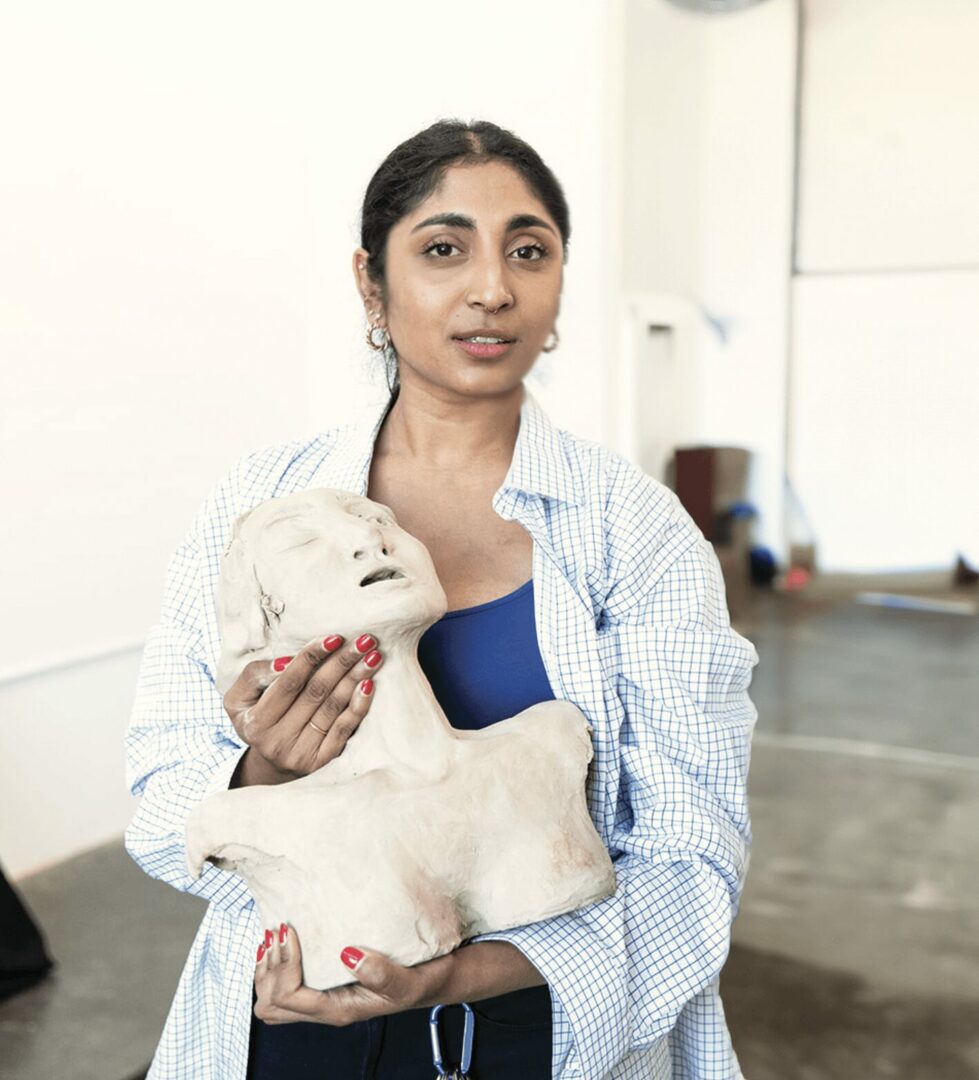We caught up with the brilliant and insightful Manasa Thimmiya Appaneravanda a few weeks ago and have shared our conversation below.
Manasa Thimmiya, we are so appreciative of you taking the time to open up about the extremely important, albeit personal, topic of mental health. Can you talk to us about your journey and how you were able to overcome the challenges related to mental issues? For readers, please note this is not medical advice, we are not doctors, you should always consult professionals for advice and that this is merely one person sharing their story and experience.
Overcoming and persisting through challenges related to my mental health has been a significant part of my journey, and it’s something I continue to navigate. For me, it’s been about finding a balance between self-awareness, seeking support, and developing coping strategies that resonate with who I am. If you observe my practice, you will see that this has actually been at the core of everything I do and make. Growing up, being labeled as sensitive was common in and around my household. People would ask my parents if I was still moody. While this ultimately led to my diagnosis of Depression, Anxiety, and Borderline Personality Disorder, I still felt unseen and unheard. Immediately, this became my life and art mission: to allow people to feel, be heard, and seen in the ways they wanted to be. Coming from India, more often than not, people prefer to push issues with mental health under the rug, and this has proven to be very heartbreaking. In my experience, not dealing with these issues leads to passing on your traumas to others, and this is what we need to avoid. This should be a journey of compassion towards oneself and others.
One of the first steps in managing my mental health has been acknowledging and accepting that it’s okay not to be okay sometimes. There’s often a stigma around mental health, but I’ve come to understand that it’s a natural part of life. Embracing this reality has allowed me to be more compassionate with myself. Instead of just pushing through without addressing how I feel, I’ve learned to recognize when I need to step back and prioritize my mental well-being.
Seeking support has been crucial in this process. Whether it’s talking to a trusted friend, family member, or professional, reaching out has made a significant difference. It’s easy to feel isolated when dealing with mental health challenges, but sharing what I’m going through has helped lighten the load and provided me with perspectives I might not have seen on my own. Therapy, in particular, has been invaluable—offering a safe space to explore my thoughts and emotions and to develop healthier coping mechanisms. It’s important to note that not everyone is equipped to deal with your issues, so asking if someone has the space to listen is a good way to navigate this. However, one hard rule I have is seeking professional help through therapy—finding what works best for you. My therapist, Mitra Golriz, and I found each other after going through several others; it’s not that they weren’t qualified, but they weren’t the right fit for me. Just like you would gauge compatibility with a romantic partner or chosen family, the connection with a therapist is crucial. For me, it was the similarities—she’s a woman, an immigrant, and someone that seemed familiar but wasn’t. We consistently work in tandem to figure out strategies that work best for me in a realistic way. Talking about the work I’m making, my schedules, my plans, my procrastination, my struggles, and my wins—all of these help. This truly allows for better insight into my life with my consent, and honestly, I couldn’t survive without this.
I’ve also developed personal strategies to manage stress and maintain my mental health. Regular practices like gardening and spending time caring for my dog have had a profound impact on my mood and energy levels. Additionally, mindfulness practices like meditation and journaling have been effective in helping me stay grounded and focused. These practices give me the space to process my thoughts and emotions instead of feeling overwhelmed by them. Remember, meditation can be anything—for me, it’s the time I spend focused on slowing down. I’ll sit for fifteen minutes staring at the rustling leaves of the palm trees outside my window and practice slow breathing.
Setting boundaries and managing my time in a way that supports my mental health has become a priority. I’ve learned the importance of saying no when I need to, taking breaks when I feel burnt out, and creating a routine that includes time for self-care. It’s all about finding that balance between pushing forward and allowing myself the space to rest when necessary—and it is quite often!
Persisting through these challenges hasn’t been about ignoring my mental health but rather learning to work with it. By accepting where I am, seeking help when I need it, and using strategies that support my well-being, I’ve been able to keep moving forward, even when things get tough. Golriz’s voice reminds me when I forget, “You are forgetting about taking it easy on yourself—self-compassion, self-compassion, Manasa.”
It’s an ongoing journey, but each step strengthens my resilience and helps me better navigate whatever comes next.
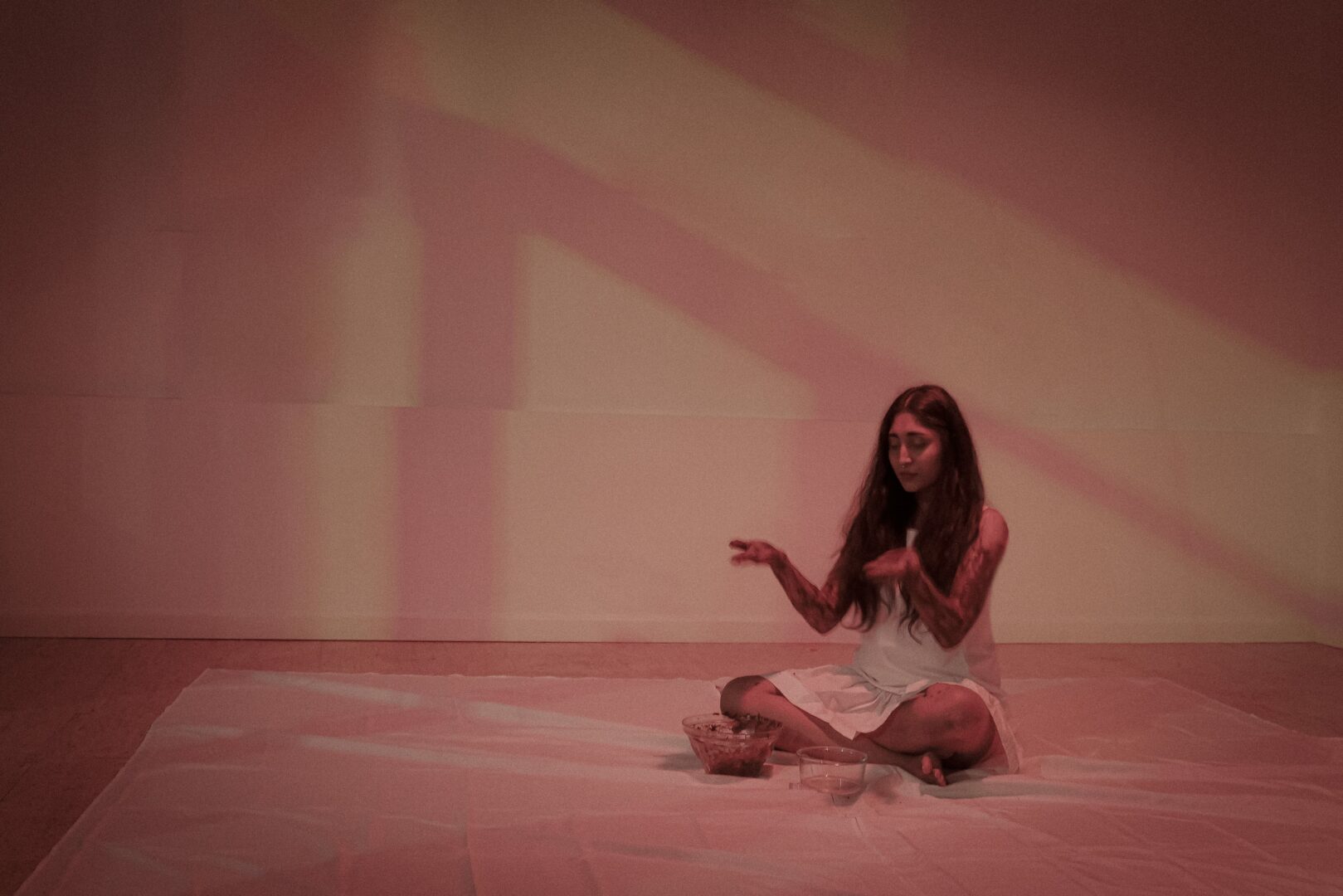
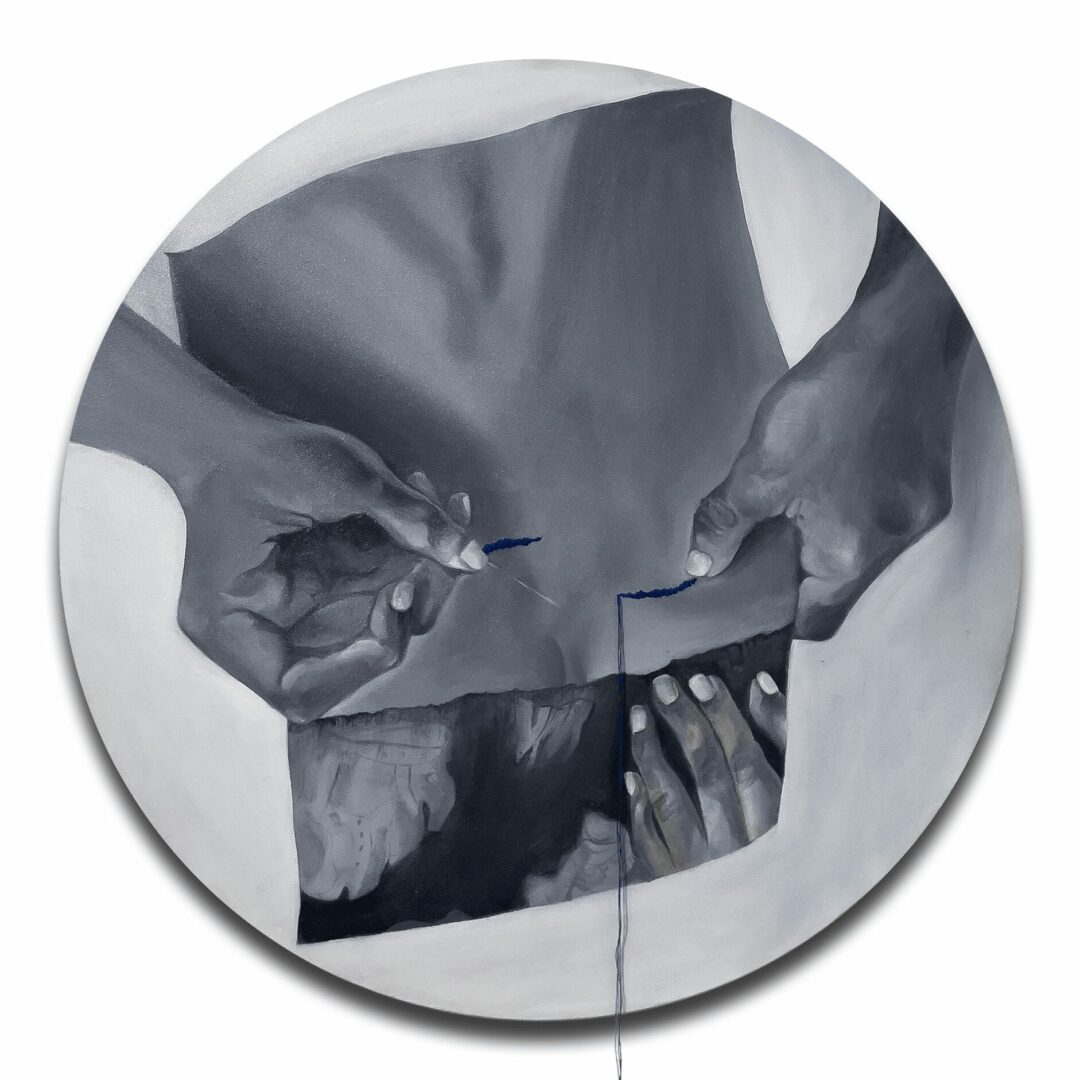
Appreciate the insights and wisdom. Before we dig deeper and ask you about the skills that matter and more, maybe you can tell our readers about yourself?
My name is Manasa Thimmiya Appaneravanda, a South Indian social practice artist currently based in San Francisco. I am a product of two distinct Southern Indian communities: my father, A.M. Thimmiya, from Kodagu—a proud warrior tribe—and my mother, Ratna Mala Thimmiya, a Telugite from Machalipatnam, a British company port back in the day. Growing up, I witnessed two communities and people from different castes coming together, teaching me about a variety of life situations from birth. My work is inspired by this diversity in community, traditions, cultures, and gender dynamics. Coming from such a diverse and rich background, I have always wanted to see my work as carrying this foundation.
My work spans various mediums, including painting, performance art, and experimental film, with a focus on themes of resilience, identity, and social issues. My art reflects my journey through mental health challenges and explores the intersection of personal experience and collective identity. My mission is to create spaces where individuals can feel seen, heard, and understood. One of the most exciting aspects of my work is its ability to connect deeply with people on an emotional level. For example, my recent performance piece, “Uyyalla,” utilized my body, saris from India, and a Magnolia tree to explore themes of labor and care. This work has evolved significantly since my first performance, “Walk All Over Me,” where I explored feelings of being taken for granted and the struggle for self-assertion through the use of body movement and found materials– which was a pivotal moment in my artistic practice, blending raw personal experiences with broader commentary on resilience and visibility. Both pieces toyed with the idea of duration an aspect of my work directly correlating with resilience. Through my work, I strive to be a voice for those often unheard and to inspire others to engage with pressing social issues. I am constantly excited by the possibilities of pushing my creative boundaries and the potential of what I can create, always full of ideas but constrained by time.
Currently, I am focused on expanding my practice through new projects and community initiatives. I identified a significant gap in spaces that showcase work within communities with limited access to the art world, particularly in the realms of performance and film. To address this, I decided to convert my backyard into an alternative showing space, calling it ‘The Backyard Plague.’ The term “Plague” reflects my belief that artists, in essence, take over spaces, creating a ruckus or a sort of “plague,” and leaving behind tiny, yet impactful, traces. The Plague transforms unconventional spaces into platforms for artistic expression, aiming to bring art into everyday environments and make it accessible and engaging for diverse audiences. As for new developments, I am actively working on expanding The Plague and seeking community support and collaboration. While it is currently hosted in my backyard in San Francisco, my vision is to activate neighborhoods globally, creating community-driven events that bridge art and social engagement.
Professionally, I work as an artist and also part-time as a youth mentor at an after-school program, where I focus on learning through STEAM. At home, in my studio, I delve into themes related to the “Mother” and the “Divine Feminine.” I am excited about upcoming projects that explore these themes through both new and traditional mediums. These explorations include a series of paintings inspired by the stories of the Hindu Goddess Kali, furthering my exploration of self-portraiture, alongside various installation and performance ideas currently in the research and trial stages. Many projects are in the process of coming to fruition, and I am eager to complete the paintings that are “not yet ready.” I am also taking this time to develop more connections in the art world, making my work more known, working on collaborating with artists, learning and listening.
Additionally, I am working on new collaborations and exhibitions that will push the boundaries of my practice and reach wider audiences. Overall, my work is driven by a desire to foster meaningful connections and provoke thought. I invite everyone to engage with my art and join me in exploring the complex narratives that shape our lives and communities.
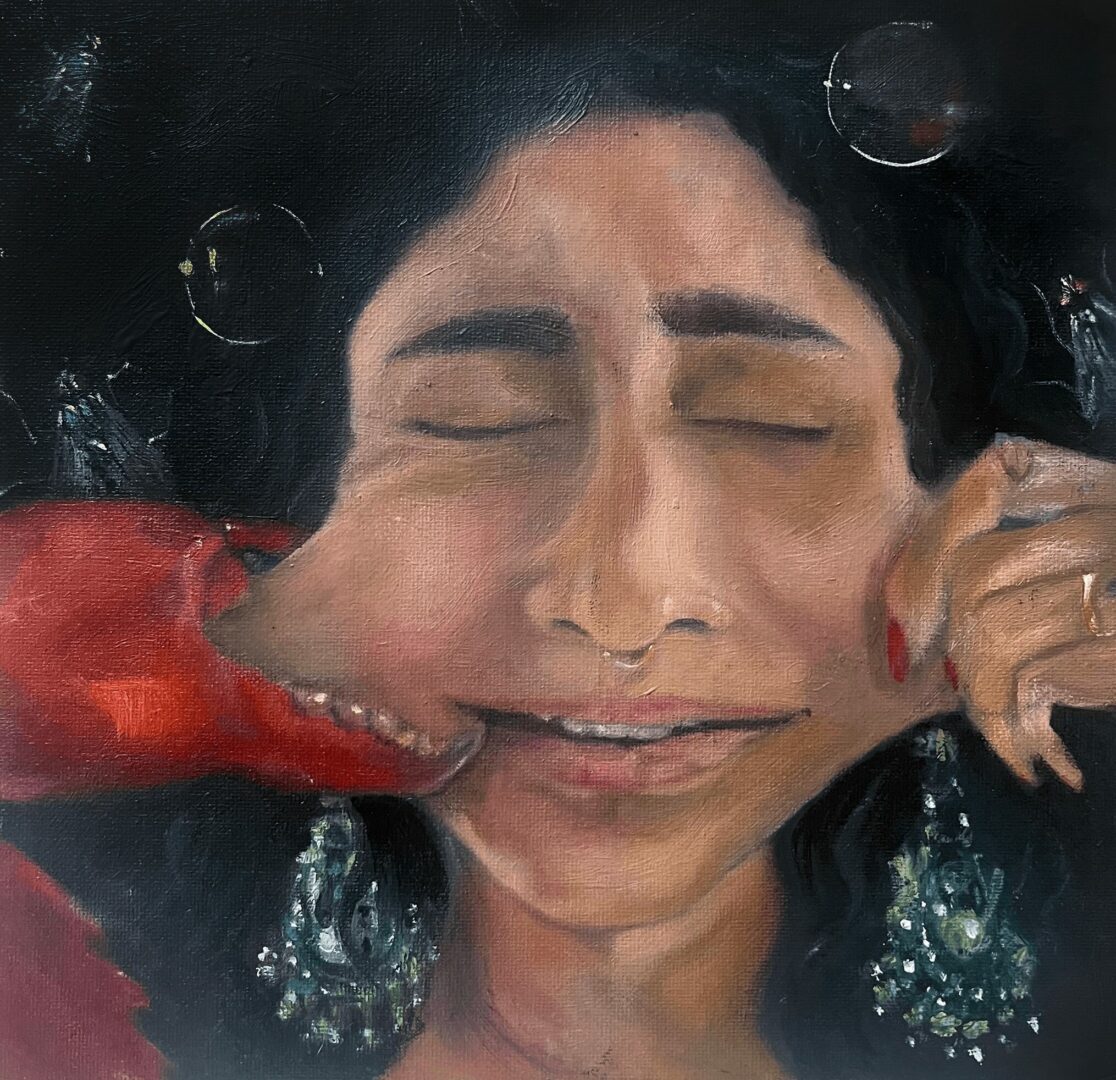
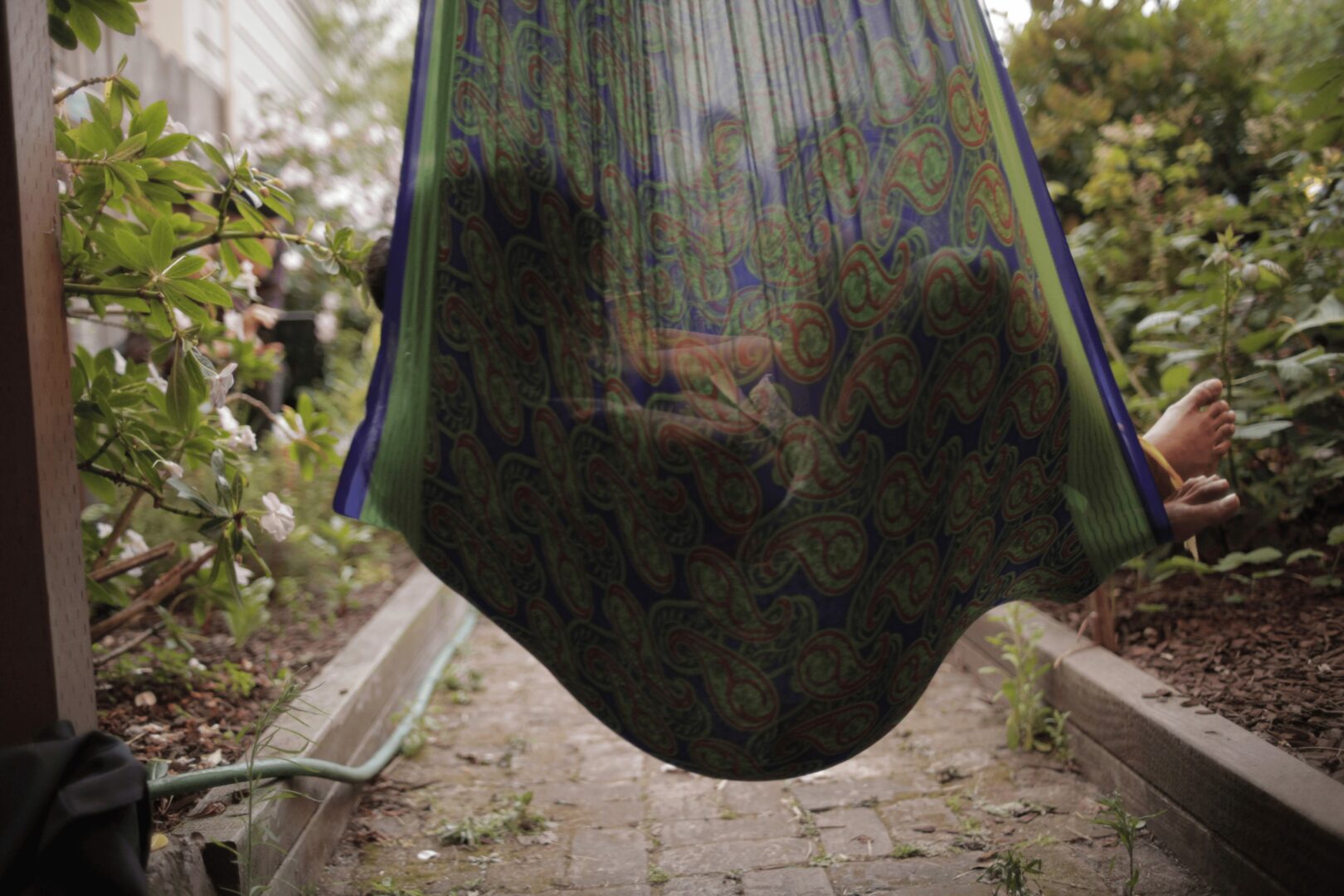
Looking back, what do you think were the three qualities, skills, or areas of knowledge that were most impactful in your journey? What advice do you have for folks who are early in their journey in terms of how they can best develop or improve on these?
Reflecting on my journey so far, I realize that several qualities and skills have played a pivotal role in shaping my path. Among them, adaptability, a growth mindset, and effective communication stand out. However, as I’ve progressed, I’ve also come to appreciate the importance of focusing on my strengths, telling my unique story, and practicing self-compassion.
Adaptability has been crucial in navigating the ever-changing landscape of my field. Whether it’s new technology, shifting market demands, or unexpected challenges, the ability to pivot, learn, and adjust has kept me resilient and open-minded. Embracing change rather than resisting it has allowed me to thrive in different circumstances. It’s essential to seek out opportunities that push you outside your comfort zone and to view each new situation as a chance to grow. There are many times when something might not work out the way you initially expected. However, that doesn’t mean your efforts are wasted. Always save your work and ideas in your mental (or literal) memory bank—they can often be adapted or repurposed later. Revisiting these ideas ensures they remain alive and ready for future opportunities.
Equally important has been maintaining a growth mindset—the belief that abilities and intelligence can be developed through dedication and hard work. This mindset has helped me overcome obstacles and persist when things get tough. Early in your journey, focus on learning and improvement rather than perfection, I am still learning this skill. Celebrate small wins and view failures as opportunities to grow. Remember, the path to success is rarely linear, and every setback can be a stepping stone if you choose to learn from it.
Effective communication has also been a key skill. The ability to clearly convey ideas, listen actively, and collaborate with others has opened doors, built relationships, and solved problems more efficiently. Communication isn’t just about talking; it’s about connecting with others. By practicing both speaking and listening, you can articulate your thoughts more clearly and engage meaningfully with those around you.
Beyond these foundational skills, I’ve learned the value of focusing on my strengths and telling my unique story. We all have unique talents and experiences that set us apart, and it’s essential to leverage these to create a distinct identity in your field. By honing in on what you do best and sharing your personal journey, you can build a brand that resonates with others and adds value to your work.
Lastly, self-compassion has been a vital component of my growth. It’s easy to be your harshest critic, especially when things don’t go as planned. However, practicing self-compassion means acknowledging your efforts, forgiving your mistakes, and treating yourself with the same kindness you would offer a friend. This approach has helped me maintain my mental well-being and keep a positive outlook, even in challenging times.
For those starting out, I encourage you to focus on building these qualities incrementally. Read, learn, and practice consistently, and don’t be afraid to ask for help or guidance along the way. Remember, everyone’s journey is different, and these skills are cultivated over time. By embracing your strengths, sharing your story, and being kind to yourself, you’ll be well-equipped to navigate the challenges and opportunities that lie ahead.
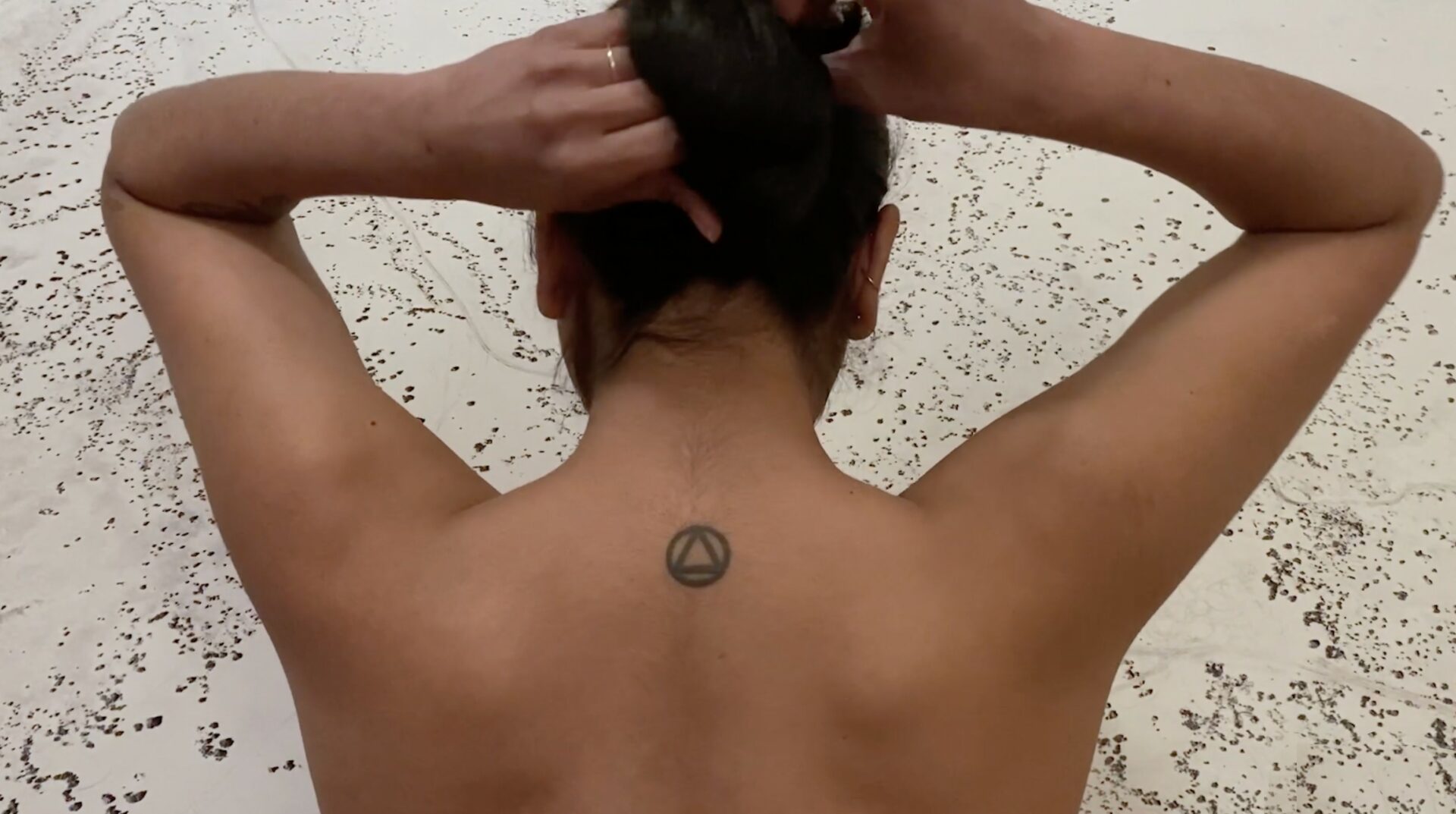
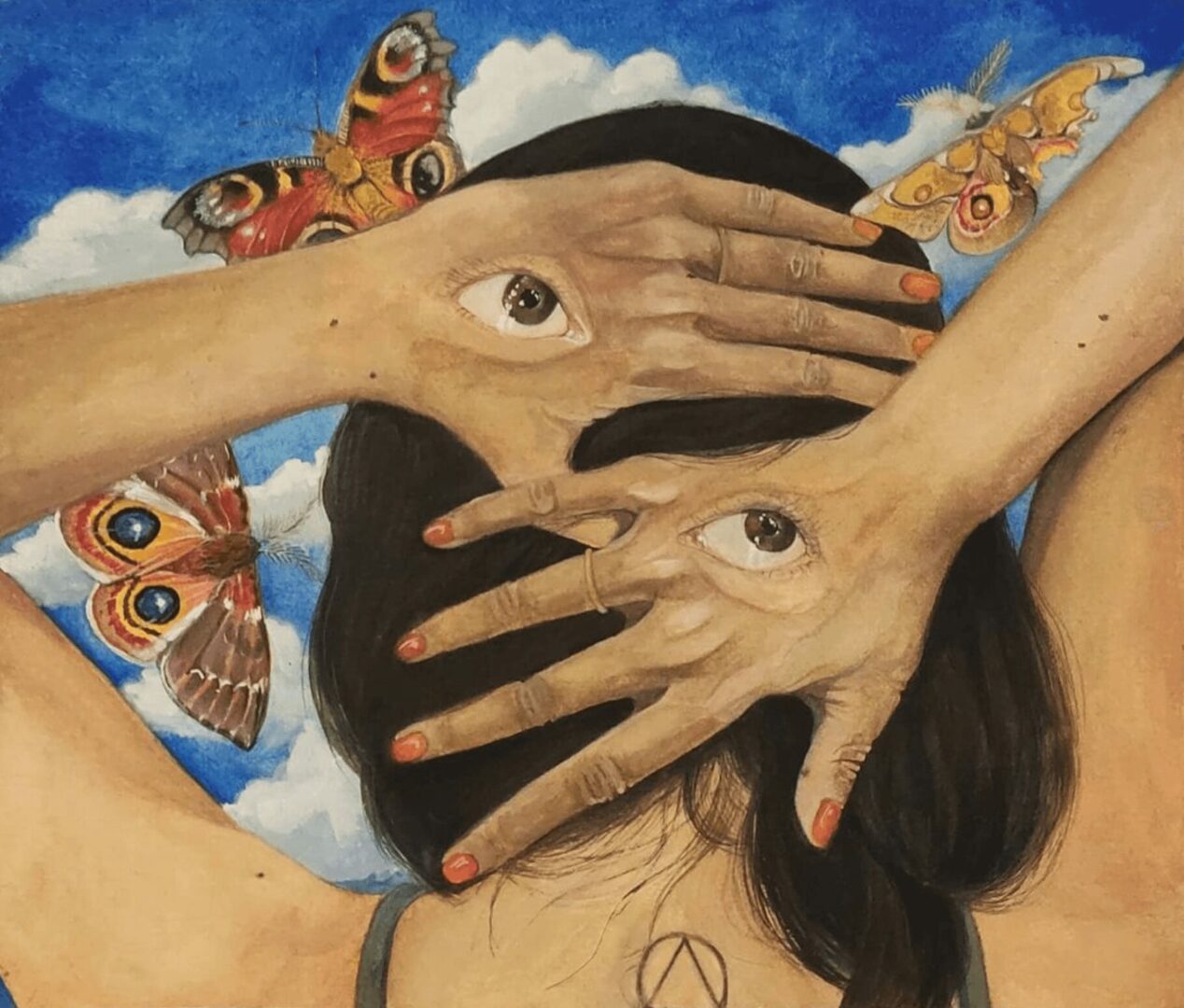
What’s been one of your main areas of growth this year?
The last 12 months have felt like a journey spanning several years. Since moving from India to San Francisco three years ago to pursue my Master’s in Fine Arts, I’ve experienced a profound transformation. What began with excitement and joy about exploring new subjects quickly turned into a period of intense personal growth and challenge.
During this time, my performance art highlighted aspects of myself that needed attention and support. I found a therapist who has been instrumental in my journey, and I also adopted a dog named Vedar. Unexpectedly, Vader brought immense joy and a renewed sense of purpose, helping me navigate through my depression in ways that medication alone had not achieved. While I continue to use medication to manage my emotions and maintain functionality, Vader’s companionship has been a significant source of light and motivation over the past few months.
I’ve also produced the most work in my life during this period, driven by both necessity and inspiration. As an immigrant adjusting to life in a new country, I’ve faced the additional challenge of managing my visa, which has been stressful and demanding. This process has introduced me to a new version of myself, one that is more resilient and resourceful than I ever imagined.
One of my most significant achievements has been the creation of “The Backyard Plague,” an initiative that has brought me into contact with many new artists and community members. This project has pushed me to continue creating and has provided opportunities I hadn’t encountered before. It has also taught me the importance of putting myself out there and seeking support from others, while also being my own greatest advocate.
Throughout this period, I’ve learned to embrace my unique path without comparing it to those around me. This shift in perspective has led me to a place of genuine contentment and hopefulness for the future. I’ve realized the importance of self-care, positive self-talk, and believing in my own potential. By focusing on these aspects, I’m excited for what lies ahead and the new opportunities that will arise.
Contact Info:
- Website: https://www.manasathimmiya.com
- Instagram: https://www.instagram.com/manasathimmiya/
- Other: https://vimeo.com/user165445692
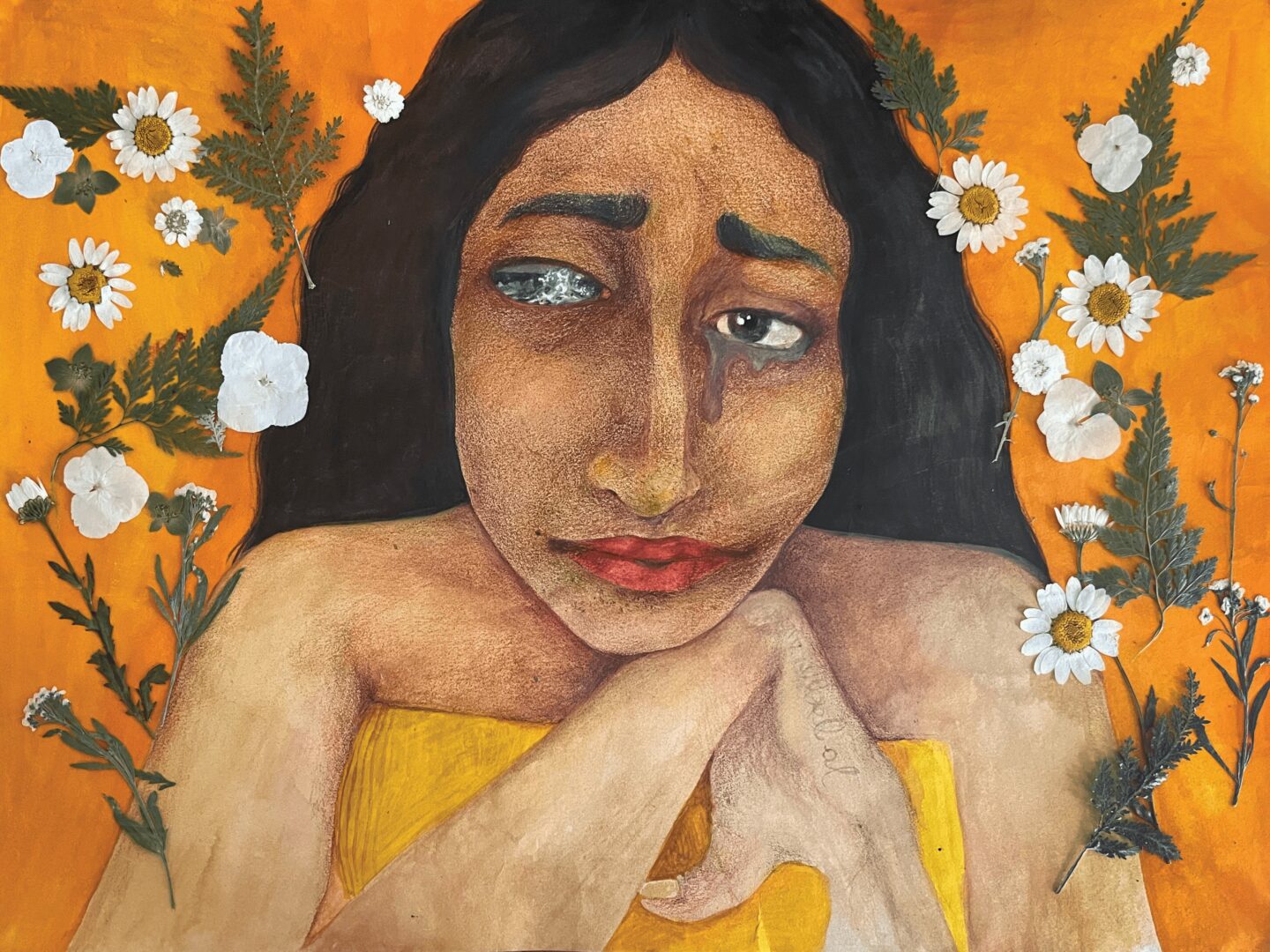
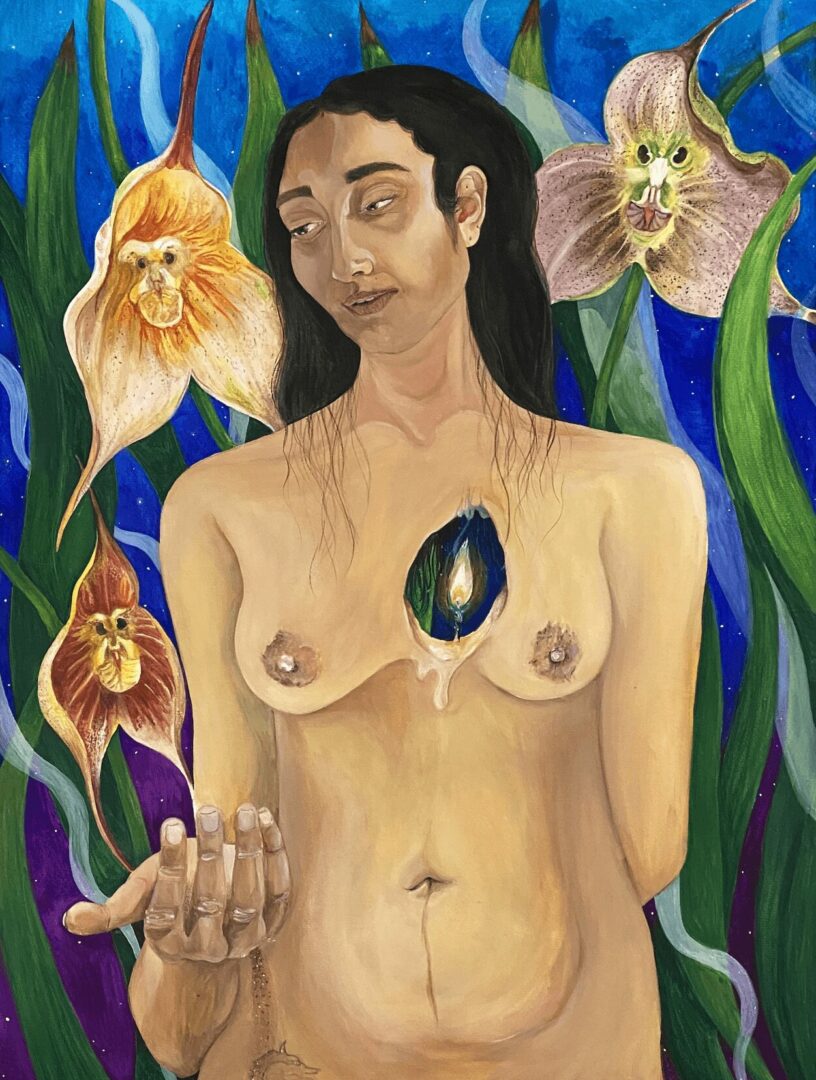
so if you or someone you know deserves recognition please let us know here.

